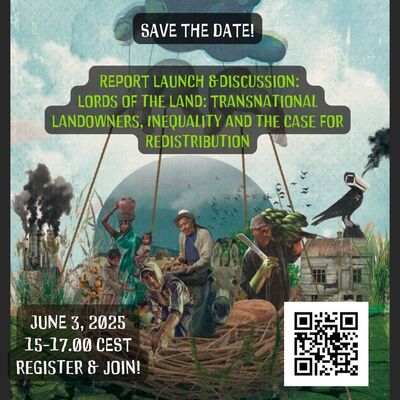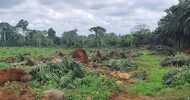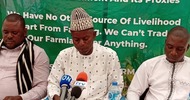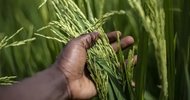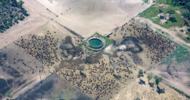FoE Asia Pacific| 16 December 2019
New report: ‘The laws of land grabs in Asia Pacific’
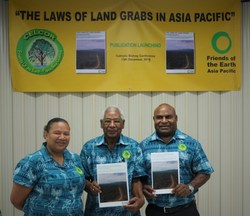
On December 13, Friends of the Earth Asia Pacific (FoE APac) launched the new ‘Laws of Land Grabs in Asia Pacific‘ report. This publication is a joint effort of six member countries of Friends of the Earth Asia Pacific under the Food Sovereignty Programme of Friends of the Earth International (FOEI). They include the Centre for Environmental Law and Community Rights (CELCOR) from Papua New Guinea, Sahabat Alam Malaysia (SAM), Wahana Lingkungan Hidup Indonesia (WALHI), Legal Rights and Natural Resources Center (LRC) from the Philippines, Centre for Environmental Justice (CEJ) from Sri Lanka and the Palestinian Environmental NGOs Network (PENGON).
The official launch took place in Papua New Guinea where Rebecca Melepia, Community Legal Education Awareness Officer at CELCOR explained,
“Since its inception CELCOR’s mission has been to promote and defend Environmental and customary rights in Papua New Guinea through law and advocacy, to ensure sustainable resource management for the benefit of the present and future generations.”
Through its advocacy efforts, this publication places emphasis on the need for total removal of Special Area Business Licences (SABLs) and for immediate amendments to relevant natural resource laws. It urges for greater recognition of customary landowners resource and human rights, and upholds Article 5 of the Papua New Guinea Constitution which recognizes cultural, commercial and ethnic diversity of its citizens as its strength. Furthermore, this publication highlights the need for the continued appreciation of traditional ways of life and culture, and their dynamic and creative application for development.
What is Land Grabbing?
Land grabbing is the control of larger than locally-typical amounts of land by any persons or entities; public or private, foreign or domestic. This can be through ownership, lease, concession, contracts, quotas or general power. This control can be acquired through legal or illegal means, for the purposes of speculation, extraction, resource control or commodification. This is often at the expense of peasant farmers, agroecology, land stewardship, food sovereignty and human rights (European Coordination Via Campesina, 2016).
In principle, Friends of the Earth Asia Pacific believes that land grabs are inherently rooted in the inequitable free market forces, attributable to our flawed economic and developmental systems. Therefore, we believe, there is also a need to understand how legislative and governance systems of the participating countries respond to such land rights threats and the extent to which they are able to protect community land rights from land grabbing and the violations of community land rights.
The six cases within the publication feature stories of resistance, explore how the legislative and governance systems in each respective country responds to land rights threats, and highlights how Friends of the Earth member groups are working to support communities impacted by land grabs.
Recommendations
The following transformative political and legislative measures are some of the recommendations put forward by the participating member groups, which would ensure greater protection of community land rights, the prevention of land grabs and human rights violations, and the sustainable management of natural resources:
-
An increased focus on the development of legal actions against unlawful Israeli occupation of Palestinian Arab lands and properties. PENGON (Palestine)
-
The introduction of legislative provisions which guarantee the right of customary landowners to freely access information on resource extraction and development activities that will affect their rights, livelihood, and well-being. CELCOR (Papua New Guinea)
-
Amendments must be made to existing land laws to repeal legal provisions that are no longer relevant and only serve to further complicate the land administrative system, to the detriment of communities and their land rights. Centre for Environmental Justice (Sri Lanka)
-
The introduction of a definition of indigenous customary land rights in the statutes regulating on land and indigenous people, in accordance with how such rights have been structured and developed by the customs and laws of the community. There must be a detailed definition of the features of such land rights that are consistent with community perspective and its traditional systems of land use management, respecting the concept of communal territoriality. Sahabat Alam Malaysia (Malaysia)
-
The halting of violence and criminalisation against indigenous peoples, local communities, farmers, fishers and women, who are fighting for the rights over their lands and livelihoods. WALHI (Indonesia)
-
The establishment of a Free Prior Informed Consent (FPIC) process based on the full disclosure of information for informed and proper decision making by indigenous peoples must be developed. Legal Rights and Natural Resources Center (Philippines)


